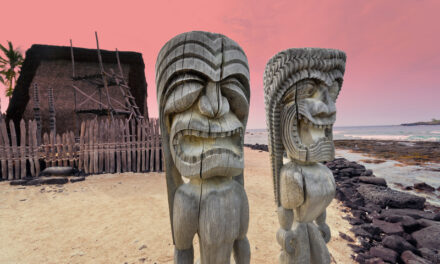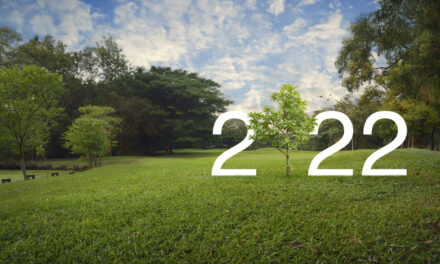In numerous posts, references have been made to the Path of Wisdom and the Path of Action. These are inseparable from the strategies we employ when dealing with challenges. For example, when there is stress, there is an automatic deployment of adrenal hormones. This occurs below the threshold of consciousness, meaning the response is instinctual, not reasoned. Yes, the cause may become apparent, but usually after some dust has settled which can be seconds or sometimes much longer. It might be that because the subconscious is connected in mysterious ways to other beings and experiences, it can operate not just independently but also precognitively, such as sensing danger before anything is actually apparent.
Survival Instinct
The message is that we have a survival instinct that will always operate to preserve life and that will always oppose risks that cannot be surmounted. That was worded very carefully so that we understand that the subconscious has opinions about almost everything. It contains the distillation of all incarnate experience, including recognition of friends and foes, opportunities and dangers, and likely outcomes. What is easy for one person may be difficult for another. Moreover, the principles and agenda of the conscious self may not be accepted by the subconscious which may hold a view something like, “Last time we did it your way, you were celebrated as a martyr and I died.” The point of an example such as this is that our souls may be noble and hold views that some issues justify risking one’s life, but from the perspective of the incarnate self and physical body, none of the arguments have any merit unless one survives and preferably survives without suffering or permanent injury.
Chakras
Very early on in my studies, I realized that while there are many books on chakras and people teaching techniques based on what they believe, the views diverged . . . creating a situation that is not simply confused and confusing but also potentially harmful to those who attempt to implement the author’s views and concepts. I might go so far as to suggest that some of the gurus were endangering their followers. In short, spinning chakras for the heck of it can have undesirable consequences, especially if the direction of the spin is incorrect.
Many people teaching such chakra exercises hold strong opinions, but my experience is that the first chakra — the one associated with survival, with the adrenals, and with the receptive path of wisdom or the action path — is the one determining the direction of the spin that is correct for the individual in question. This may be clockwise or counterclockwise and spinning it the wrong direction by using mind over matter will cause problems, usually temporary but sometimes very serious if the person persists in trying to affect the spin.
The problems caused by this will obviously not be diagnosed correctly by most doctors. How many times have you been to a doctor who asked you about your chakras? Worse, because some of these exercises are taught as secrets, patients sometimes insist they cannot discuss their “spiritual” practices. What a great cover!
In any event, the point here is that the chakras govern the endocrine glands and the trigger therefore occurs first in the invisible field before anything is physically detectable. However, what happens is caused by forces outside our normal areas of perception. To interpret these actions may require the help of someone who is conscious in other dimensions or capable of rather sophisticated therapy to bring awareness into the subconscious.
Action
Action inevitably involves movement which means there will also be a reaction. This is why skill is needed. As a very simple example of action and reaction, we can look at the current U.S.-China situation. The U.S. shut down the Chinese Consulate in Houston. China retaliated by shutting down the U.S. Consulate in Chendu. The press is referring to this as tit for tat. It is also however a very simple and easy to understand example of action and reaction.
Reaction is not always so obvious as the Chinese could expel diplomats or journalists or arrest someone on charges of spying. They could break off diplomatic relations completely or much worse. This is why skill in action is essential on the path of action. Every action should be carefully considered so that the full range of the reactions can be assessed before precipitating a reaction. In short, the pros and cons of annoying another party should be evaluated and perhaps some kind of peaceful accord can be sought before risking a crisis.
Actions that do not feel good will be deemed hostile so the potential reactions have to be considered in the same way that battle plans are weighed. In short, what if the enemy does this? What if the enemy does something not anticipated? What if the enemy can be befriended? It goes without saying that the higher the risks, the more individuals are pushed to the extreme so one of the perils on the path of action is that parties may come to the point that the stakes are so high that the end justifies the means . . . and this is the end of ethical conduct.
Strategies
In historic times, East Asian rulers played various games, like go, to develop their capacity for strategizing. Some people believe that Trump is like a chess player who is always five moves ahead of what others see. It could however be that the adversary has mastered Sun Tzu’s Art of War and the losing party does not even realize when the troops have been surrounded.
That is just another example of the need to develop as much skill as is needed to navigate all situations in which action begets reaction. Do we, for instance, know the limit of our partners’ ability to tolerate certain unwelcome actions or behavior?
Politicians are generally on the path of action, but people who are less visible may also be initiators of actions. Imagine that someone has some really annoying habits. How many times will the victim of those habits say, “If you tip the bottle one more time, I’m leaving.” Maybe, it is about bad manners or extravagance or hygiene or failure to respond when asked a question. Have we calculated where the hot spots are so we know when buttons are being pushed? Do we know the consequences for provocation? Do we know which straw will break the camel’s back?
I have only seen commentaries on The Art of the Deal because once it was clear that the book was ghostwritten, it seemed irrelevant. That said, a deal is a negotiation in which each person is seeking something and each may also be bluffing about where the limits are. Let’s say you want to buy something and you make an offer. It is rejected, and you walk away hoping that the other person will say, “Hey, wait a minute, I might be able to come down a bit.” Do we know the actual bottom line or are we gambling that a lower price might be offered?
The reason I write so often about win-win is that when an agreement is made that is unfair, there will usually be repercussions. For instance, a contractor may cut corners because he needs to make a profit and cannot if the price is too low. Or, the contractor may back out or make the item smaller or use less skilled labor. We do not know, but fairness is the first step in the direction of reaching a long-term and stable solution. Without that kind of stability, change is inevitable because the stage was set for repercussions.
Understanding the nature of action and reaction helps us to appreciate why many people like predictability whereas others claim to thrive on the thrill of gaming the adversary . . . which, of course, triggers the adrenals and there are people who seek adrenaline highs. Given that half the population is probably on the path of action and the other half on the path of wisdom may explain why change is usually slow to gain support and may take much longer than predicted to become accepted. Obviously, there are often very good reasons for change, but people in general do not like being out on a limb so caution tends to prevail over excitement.
The Prince
Though the term Machiavellian has come to denote someone who uses devious means and who should never be trusted, the psychological definition has little to do with the historic individual who wrote about what people want from those in authority. The advice given to “the prince” is to appear to be what the people want. Many politicians have obviously taken this seriously enough to say one thing and do another. This, in turn, means that others must have discernment or they will be duped.
So, yes, the advice was cynical and in a major way contradicts what Apollonius of Tyana advised Severus, i.e., that “A ruler should only make laws he himself is willing to obey.”
Contentious Times
When we are in a cycle such as now, the more damning the assessment of humanity is, the more sophisticated the critic seems to others. He is viewed as a realist who does not gloss over issues much less expect a happy outcome. Idealists, on the other hand, might be more optimistic and assess the same dynamics differently, seeing what is possible even if not likely. The advice of sages, i.e., those on the path of wisdom, is generally to do what is most ethical because this creates the least disharmony. It does not matter whether we are seeing history through the eyes of indigenous elders, Vedic scholars, Greek philosophers, or New Age prophets, karma is minimized by making the fewest waves. This is also the strongest argument for people of action to use their power fairly. If the other party is so cornered that he or she feels there is nothing to lose, tensions will escalate to the maximum possible. I believe that many today feel almost checkmated so the fight or flight mechanism is fully triggered. We can therefore wait to see what happens when people feel there is nothing to lose by acting out their anxieties and discontent.
My Pet Peeve
As some of you know, I feel that Western civilization slid downhill when the doctrine of karma and reincarnation was deleted from the Bible. This happened at the Fifth Ecumenical Council, 553 AD, but was not entirely accepted despite massive persecution for centuries, the worst of which was probably the attempt to eradicate all Cathars (1209-1218 AD).
The Old Testament, of course, refers to an eye for eye and a tooth for a tooth, but that is not a very sophisticated explanation of a complex doctrine, one that was generally embraced by most of the world until being given the boot in Constantinople.
We are left with the Golden Rule, nice advice, but unless there is concept of repercussions, the idea sounds kind but not threatening. The point is not how something is worded but what the unconscious itself believes. It is fair to say that regardless of whether we favor caution or risk taking, fear plays a role in both possibilities. Fear motivates caution and risk taking triggers fear. So, the emotion most closely related to the adrenals is fear . . . and when evil deeds have been committed, fear can become paranoia . . . which I believe is the end result of misuse of power.
Any thinking person knows that a paranoid politician poses a danger to others. In less visible situations, paranoia may seem very much more personal but when a powerful person is paranoid, everyone needs to be very clear in order to avoid danger. I think paranoia can be curative in the sense that living with exaggerated fear day in and day out can encourage the offender to modify behavior. In short, over a very long period of time, the misuse of power may be abandoned.
This is the basis for clemency when warring parties reach the point of surrender. Throughout history, there have been differing views, but anyone who sincerely regrets bad deeds is at least halfway to inner peace. Atonement may perhaps restore true balance, but this often takes many lifetimes as people on the path of action are rarely celebrated for their wisdom . . . something to keep in mind.
Notes
This post has taken a long time to write because of interruptions. My technical issues reached critical mass, and I have a new technician who seems to have wings of gold so let’s pray he fixes everything.
The Cycle
The drastic Covid measures have been extended in Washington State. It’s been a long time, but I am sure this year will end on a better note, not because of Covid, not because rioting, and not because of new draconian measures but because communities have come together. People are communicating with each other, supporting each other, and pulling together. In the end, we may find that we really like to self-govern.
Copyright by Ingrid Naiman 2020
First posted to subscribers on 31 July 2020
The following link is for the Institute and can also be used to make donations:





